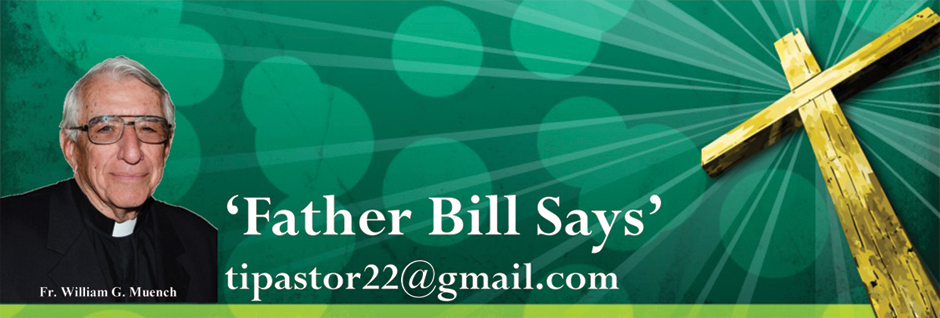April 2, 2025 By Father William Muench During Lent, we meditate often on the crucified Jesus. In prayer, we use the image of Jesus as the Lamb of God who died for us. At each Mass, just before Communion, we praise Our Lord Jesus as we sing, “Agnus Dei,” or “Lamb of God, who takes away the sins of the world, have mercy on us.” Each time we say or sing the “Gloria” at Mass, we speak of Jesus as the Lamb of God. I noticed today a preface that speaks of Jesus as “our Passover.” To understand these images of Jesus, we must remember the Exodus of the Hebrew people from Egypt to the Promised Land as recorded in the Old Testament. Today, let us remember this story. We must begin with Joseph, one of Jacob’s twelve sons (Genesis 37). We are told that Joseph was Jacob’s favorite son. So much so that this disturbed the other brothers. They even wanted to kill him. The story tells us that there was an incident when the brothers were all away from home, and they hatched a plot to kill Joseph. However, one brother, Judah, protected him. Judah convinces the others to sell Joseph to traveling merchants on their way to Egypt. They would sell Joseph into slavery. In Egypt, in various ways, Joseph is noticed for his unique ability. He receives an important office in the land. This develops his opportunity to become reconciled with his brothers. Then Joseph brings his Hebrew family to Egypt, and a large Hebrew community develops there. Years later, the Book of Exodus tells us, a prejudice develops against the Hebrews in Egypt. The Hebrews are forced into slavery. It is then that Moses comes along. I am certain that you remember the burning bush. God speaks to Moses from the burning bush, and God commissions Moses to go to Egypt to win freedom for the Hebrew people. One part of the story always interests me. Moses asks God at the burning bush what his name is – he believes this will convince the Hebrews that he is sent by God. God tells Moses that his name is “I am.” There is meaning here. “I am” is first person present tense of “to be.” So, God is a person – like us – not some statue or some star or moon in the sky. And God is always present, always ready to act now. He’s not some past figure and not some future possibility. God is always present. Exodus tells us that Moses goes to Egypt, and he wins freedom for his Hebrew people through a series of plagues. The last of these plagues is the death of the first born. However, Moses is told that he should protect the Hebrew families. Each family is to procure a lamb and prepare it for a family meal. They are to take some of the blood from that lamb and put it over the house front door. The angel of death will see the blood of that lamb at the home of the Hebrew family and pass over (Passover) it. They would be saved by the blood of the lamb. Jews everywhere continue to celebrate this festival of Passover every year. The Passover celebrates that “our people were once slaves, but God saved them.” It celebrates God sending Moses and winning for them freedom and leading them to the Promised Land. For us, Christians, our lamb is Jesus, who died for us. We are saved by the blood of Jesus, as were the Hebrews in Egypt. We are saved by the blood of Jesus. Our lamb, Jesus, wins for us freedom from sin through his suffering and crucifixion. We are saved by the Lamb of God, Jesus. |
||||


